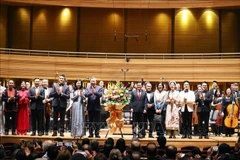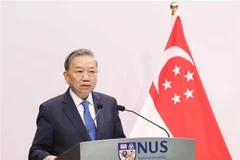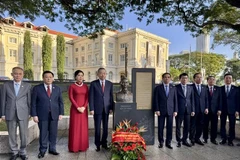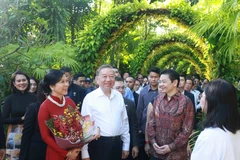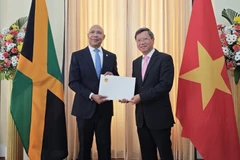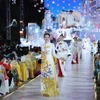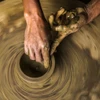 Party General Secretary Nguyen Phu Trong (front row, third from right) and other officials offer incense in tribute to late kings and talented persons who had made contributions to the nation at Kinh Thien Palace in Thang Long Imperial Citadel. (Photo: VNA)
Party General Secretary Nguyen Phu Trong (front row, third from right) and other officials offer incense in tribute to late kings and talented persons who had made contributions to the nation at Kinh Thien Palace in Thang Long Imperial Citadel. (Photo: VNA) The Party leaderaffirmed the resolve to uphold Vietnamese traditional values and strengthen thegreat national unity bloc to build a nation of wealth, democracy, equality and civilisation.
Talking with the staff of the relic site, he urgedthem to work harder to preserve and promote values of the UNESCO-recognised citadelto international friends and contribute to educating young generations about nationaltraditions.
The Thang Long Imperial Citadel, which was placed onthe UNESCO list in August 2010, was a power centre for over a thousand years ofVietnamese history and unique evidence of Vietnamese civilisation during thedevelopment of monarchies in Southeast Asia and East Asia.
Kinh Thien Palace is the main building in the centralsector of the citadel, which is located in what is today downtown Hanoi. Itsits in the centre of the complex, facing Doan Mon (south gate) and Flag Tower.
The palace was built in 1428 and is believed to be ofthe highest importance, hosting many royal ceremonies. It was also the place wher eroyalswere invited to discuss national issues.
It was almost destroyed at the end of the 19th centuryby the French colonialists, however, and all that remains today is a100-cm-high banister to the south of the plot and several large stone stepswith dragon carvings./.




